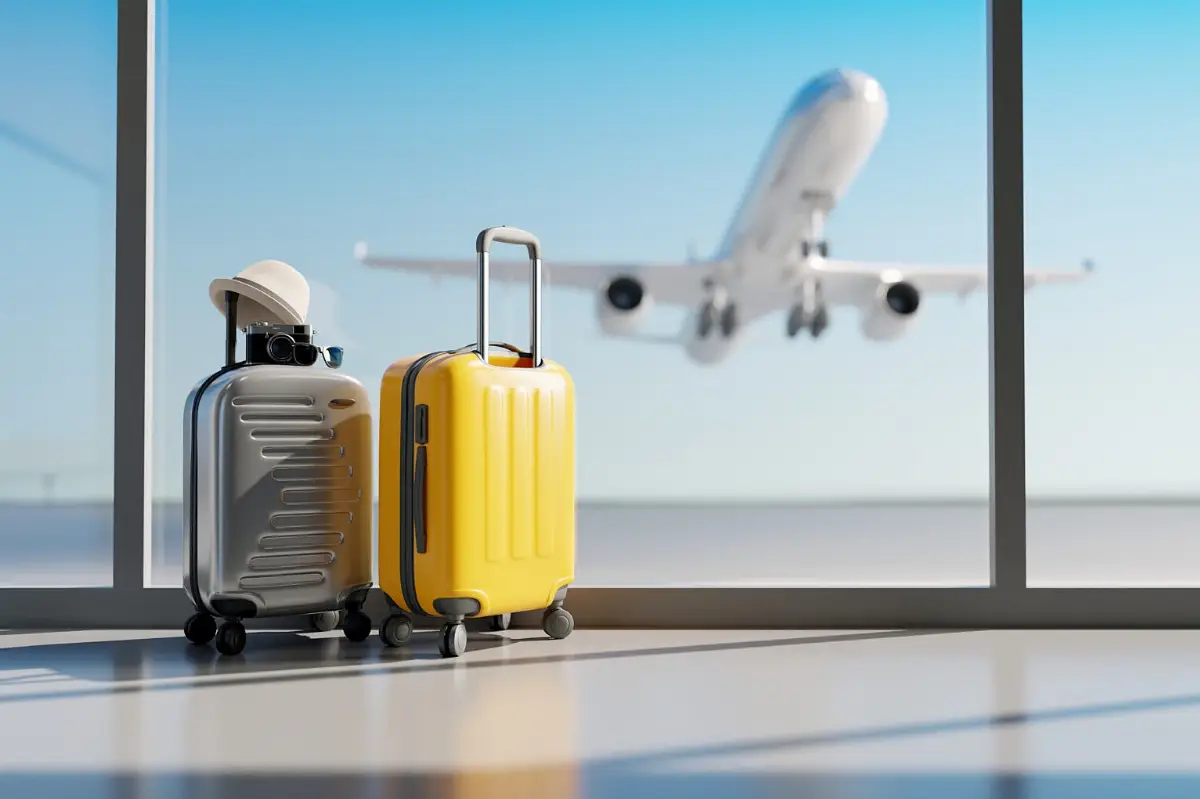
Aircraft and transport 2024: number of passengers rises but lost baggage rate declines
Thanks to technology-driven improvements, indicates the report "Sita Baggage IT Insights 2025"

However, since poor management still costs airlines $5 billion a year and passenger expectations are rising, it is essential to continue investing in real-time baggage management systems
2024 has been a record year for air travel: the number of passengers worldwide reached 5.3 billion, the highest in aviation history. Along with the increase in passenger volume, the number of bags handled also rose. Yet, the rate of lost luggage continued to decline, according to recently published data from the "Sita Baggage IT Insights 2025". This is a clear sign of progress in the sector, even though challenges persist.
The lost baggage rate dropped to 6.3 bags per 1,000 passengers in 2024, compared to 6.9 the previous year, marking a 67% improvement since 2007. This decline is even more significant given the surge in global traffic, which grew by 8.2% just in 2024. While the total number of lost bags slightly decreased to 33.4 million despite record passenger volumes, the percentage of lost luggage kept falling, demonstrating the growing impact of technology and automation.
Of the 33.4 million lost bags, over 66% (22 million) were resolved and closed in Sita WorldTracer within 48 hours, showcasing the industry's ability to quickly reunite passengers with their luggage. Specifically, of these 22 million, 25% were resolved within 12 hours, 38% within 24 hours, and another 37% within 48 hours. However, despite these clear improvements, mishandling luggage is expected to cost the industry around $5 billion in 2024, and passengers are increasingly demanding more from this sector. The expenses—from carrier reimbursements to customer service, claims management, and lost productivity—highlight the urgent need to continue investing in real-time, automated, and data-driven baggage management systems.
"In air transport, transformation is not a phase; it is the norm. The industry is continuously evolving, driven by technology, passenger expectations, and global changes", stated David Lavorel, CEO of Sita. "We have witnessed a radical shift with automation and the widespread use of real-time tracking. Passengers now expect their baggage experience to be as simple and transparent as using a ride-sharing or delivery app. It’s no longer just about moving luggage but delivering a smooth, connected journey. Airlines are ready to leverage technologies that enhance passenger experience, reduce costs, and simplify implementation. Together with our partners, we are rethinking baggage management to offer passengers full visibility and control from departure to arrival, providing peace of mind and making travel simpler and better".
Technological Maturity, Not Experimentation
Airports and airlines are now handling higher volumes of luggage with greater accuracy. Real-time tracking, AI-driven analytics, and self-service solutions are no longer experimental; they are becoming standard and are clearly making an impact. This reflects the tangible results of investing in intelligent, data-based baggage management systems. In 2024, 42% of passengers had access to real-time baggage updates, up from 38% the previous year. Nearly half of travellers say tracking via mobile devices would increase their confidence in checking baggage, and 38% appreciate the addition of digital identification tags.
Air carriers have responded by prioritizing visibility along the entire baggage journey. Currently, 66% offer automatic baggage drop systems, with another 16% planning to implement them by 2027. Regarding airports, 65% plan to deploy biometric self-service baggage drop systems within the same timeframe.
A partnership between technology and trust
One of the most significant innovations of 2024 was the integration of Apple’s "Share item location" feature with Sita WorldTracer. Passengers can share the location of their Apple AirTag with airlines, enabling faster baggage recovery. Airlines adopting this feature include British Airways, Lufthansa, Qantas, Cathay, and Virgin Atlantic. This integration also powers WorldTracer’s Auto Reflight, which automatically reloads baggage on the original tag, identifies the cause of non-transfer, and initiates resolution without human intervention.
Where most bags are lost and how the industry is responding
Delayed baggage remains the most common issue, accounting for 74% of lost baggage cases, down from 80% the previous year. Lost or stolen bags represented 8%, while damaged or stolen baggage increased to 18%, up from 15% in 2023. Mishandling of transfers contributed the most at 41%, improving from 46% the year before. Tagging or ticketing errors, security issues, and similar factors slightly increased to 17% (+3 percentage points), while loading issues remained stable at 16%. Operational problems such as customs delays, weather conditions, or capacity constraints rose to 10%, compared to 8% previously.
"We are making progress, but baggage continues to cause stress", said Nicole Hogg, Sita’s Director of Baggage. "Passengers want reassurance. The future of baggage is rapidly evolving thanks to automation, computer vision, and mobile tools; we are making the experience much more reliable".
New standards aim to further reduce mishandling
In 2025, the air transport sector approved the new "Modern Baggage Messaging" (MBM) standard. Designed to improve data quality, MBM version 2 is expected to reduce mishandling issues by an additional 5%. These enhancements build upon IATA Resolution 753, which mandates baggage tracking through four key stages. The current objective is to use shared data to predict and prevent problems, not just report them.
Baggage as a service, not a challenge
Airports like Saudi Arabia’s "Red Sea International" are already implementing state-of-the-art baggage solutions, including off-airport check-in and real-time tracking, powered by Sita Bag Journey. "Every bag matters", added Hogg. "It’s not just about reducing errors. It’s about building trust in travel, and technology is clearly making that possible".
The SITA Baggage IT Insights 2025 report reflects the opinions and data of 280 airlines and IATA passenger traffic statistics. Sita applies a weighting system, based on IATA passenger traffic statistics, to WorldTracer data to calculate baggage mishandling rates.
AVIONEWS - World Aeronautical Press Agency